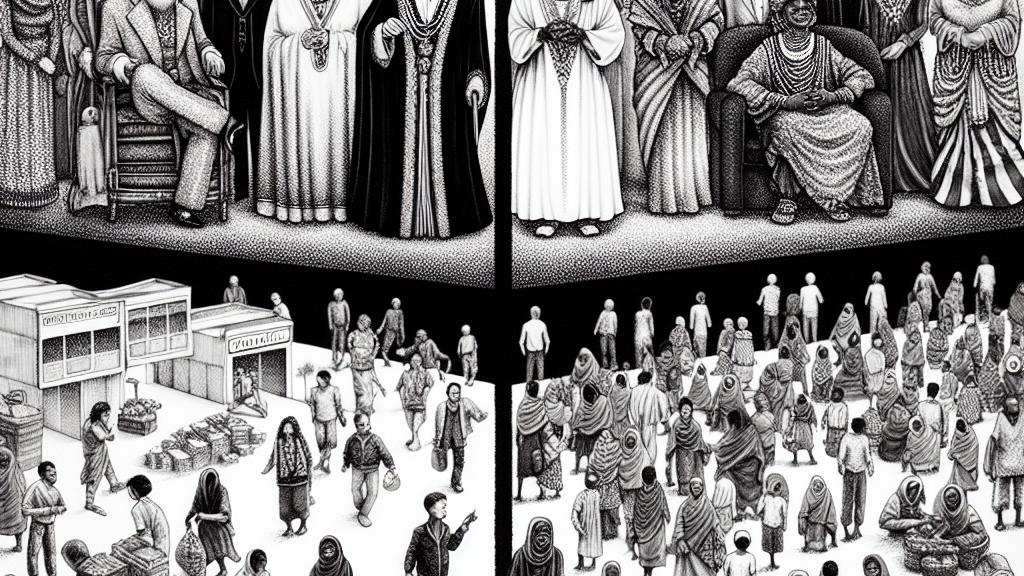Understanding the Rise of Billionaires and Economic Inequality
Overview
- Billionaire wealth skyrocketed by an astounding $2 trillion in 2024.
- Oxfam forecasts a future with at least five trillionaires on the horizon.
- As the ultra-rich thrive, millions continue to face unyielding poverty.

The Unprecedented Surge in Wealth
In a jaw-dropping turn of events, billionaires collectively amassed over $2 trillion in additional wealth during 2024, catapulting their total fortunes from $13 trillion to an eye-watering $15 trillion. Oxfam points out that this increase is not just significant; it is the second-largest annual growth since their records began. The numbers reveal a stark truth: while a small group of individuals enjoys unprecedented riches, a staggering 44% of the world's population struggles to survive on less than $6.85 a day. This alarming contradiction highlights an urgent need to address a system that favors wealth accumulation for the few while leaving the vast majority behind.
The Emergence of Trillionaires
Looking ahead, Oxfam predicts that the landscape of wealth will soon change dramatically, with the emergence of at least five trillionaires within the next decade. Imagine, for example, Elon Musk, currently worth around $440 billion, potentially becoming the world’s first trillionaire by 2027. This isn't merely a forecast; it's a clarion call to acknowledge the widening wealth gap and its consequences. Such a scenario compels us to ask critical questions about the systems that allow wealth to concentrate so heavily in the hands of a few—questions that demand thoughtful answers about fairness and equity in our economy.
Systemic Inequality and Inherited Wealth
A central thread weaving through this saga of inequality is the concept of 'unmerited wealth.' Oxfam reports that a staggering 60% of billionaire fortunes stem from inheritance or monopolistic control rather than from genuine innovation or hard work. Take the Walton family, heirs to the Walmart dynasty, as a compelling case study—a family whose wealth grows without them lifting a finger to create it. Furthermore, wealth can accumulate without ever being taxed; billionaires often leverage low-interest loans against their increasing asset values to live luxuriously, all while the working class bears the brunt of taxation and economic hardship. This dynamic feeds an ever-deepening chasm between the ultra-rich and the everyday citizen.
Calls for Fairness and Reform
In response to this stark reality, organizations like Oxfam are championing an urgent and vital cause: reforming global economic policies. They advocate for a system where the wealth gained by the ultra-rich is taxed fairly, ultimately reallocating those funds to fortify public services like education, healthcare, and social welfare programs. President Biden has echoed these sentiments, emphasizing that taxation should reflect fairness and equity in society. He has argued persuasively that the wealthy must contribute their fair share to foster a healthy economy. After all, we cannot build a just society on a foundation of disparity. Transforming our economic structure isn't a mere recommendation; rather, it is an essential pursuit for ensuring a future where everyone has the opportunity to thrive.

Loading...